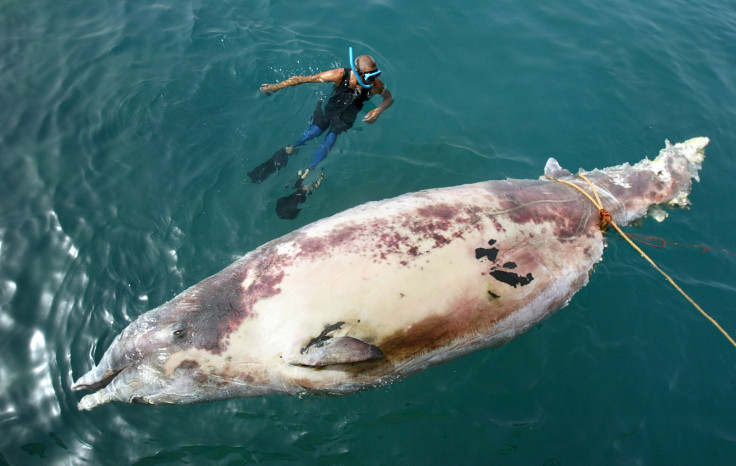Norway whale starves to death after swallowing 30 plastic bags
The creature had to be put down after efforts to help alleviate pin and help it leave the shore failed.
A beached whale found off the coast of Norway with 30 plastic bags inside its stomach has been put down.
Wardens decided to put the creature out of its misery after realising it was unlikely to survive as it ate so much waste it became malnourished.
The finding, reported by the Telegraph, raises serious concerns about the volume of plastic found in oceans and the safety of marine animals.
The World Economic Forum reported in a December 2016 study that there are roughly 5.25 trillion pieces of plastic debris in the ocean. Of that number, 269,000 float on the ocean surface while four billion plastic microfibres are found on the ocean floor.
Meanwhile, Plastic Change, an environmental organisation that campaigns against plastic pollution, predicts these numbers could double in the next decade if there is not significant action against plastic pollution in the ocean.
The Cuvier's beaked whale was first sighted on the island of Sotra in Norway. Scientists noticed that it lacked blubber, indicating it was going hungry.
Cuvier's beaked whales can grow to 22ft (6.7m) long and normally eat squid and deep sea fish. They are usually found in waters with cool temperatures, such as the North Pacific and Atlantic oceans.
Horrible: this whale in Norway had 30 plastic bags in its stomach.
— Erik Solheim (@ErikSolheim) February 2, 2017
Exactly why we need to prevent plastic pollution!https://t.co/vSuUi0DcIa pic.twitter.com/mwMcPRt6Zx
They are protected under UK and EU law, according to Schedule 5 of the Wildlife and Countryside Act 1981, the Nature Conservation Act 2004 and the 1992 EU Habitats and Species Directive.
"The whale's stomach was full of plastic bags and packaging with labels in Danish and English," said Dr Terje Lislevand, a zoologist who was on the scene when the whale died.

Dr Lislevand said he was saddened to learn that the high levels of plastic were likely causing the whale a great deal of pain, resulting in its later death.
"The findings are not surprising, but clearly it is sad to discover such large quantities."
© Copyright IBTimes 2024. All rights reserved.





